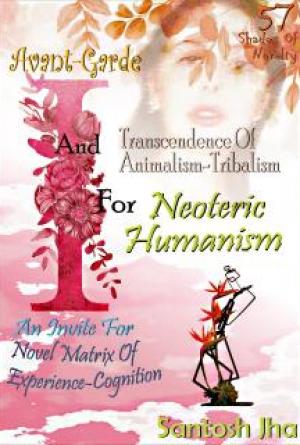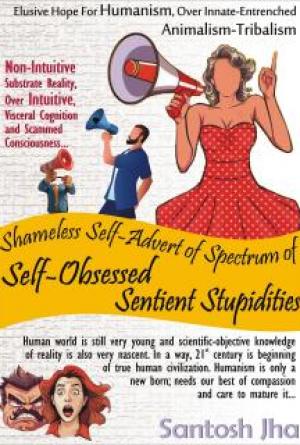WORDS
AN END TO ANGER & CONFLICT
by
David Samuel
2
Understanding Words
An End to Anger & Conflict
By
David Samuel
Copyright © David Samuel, 2008
This book is freely distributed, please pass it on to
anyone you wish.
I only request that you give credit to the author and
maintain the link to my web site.
www.davidsamuel.net
David Samuel has asserted his right to be identified as the
author of this Work in accordance with the Copyright, Designs
and Patents act 1988.
Copyright David Samuel
www.davidsamuel.net
3
Introduction
I have presented this material numerous times to
groups in several countries. The participants feedback
was consistent. A reduction of anger by approximately
50% to 70% within a couple of weeks.
That may sound unbelievable, but really it is not.
The basis of such a large reduction is that there are two
kinds of anger. Anger for and anger at something.
Anger can be either destructive or constructive,
depending on whether it is at or for something. Anger at
is destructive and serves no useful purpose. It is the
emotion we express toward drivers who cut us off, for
example. This type of anger robs you of vital energy and
can become addictive, like misery. A friend and teacher
once told me, “Some people love their suffering so much
I don’t have the heart to take it away from them.”
.
Anger at is consuming. Like a wildfire with more
and more forest to decimate, it continually replenishes its
force, rarely burning itself out. If it is not dissolved, it
simmers down, laying in wait for yet another reason to
control your mind and have you blow up at a mere trifle.
Anger for, on the other hand, is a positive force
that many highly successful people use to significant
advantage, directing it rather than letting it consume
them. Anger for is the type of anger we have about
Copyright David Samuel
www.davidsamuel.net
4
injustice, poverty, or educational, socioeconomic, health,
or racial inequities—phenomena beyond our control that
limit people from expressing their full potential. It makes
us want to constructively change the way things are.
Anger for the improvement of life often provides
the passion that fuels success, like the fire that heats the
water for running a steam engine.
Mahatma Gandhi, feeling anger for the British
injustices toward the people of India, once said, “I have
learnt through bitter experience the one supreme lesson:
to conserve my anger, and as heat conserved is
transmuted into energy, even so our anger controlled
[focused] can be transmuted into a power which can
move the world.” And move the world he did! Gandhi’s
passion was so fervent that 250 million people supported
his cause, ultimately returning the control of India to
Indians.
Always question whether you are angry at o r
angry for. If you do not know, look for physical cues:
anger at feels like your body is tensing up, or like you
can’t breathe, or like a gremlin is eating you from the
inside, whereas anger for feels more like you are being
propelled from the inside. Once you have identified the
type of anger you are feeling, recognize that anger at
someone must be dissolved and anger for an injustice
must be expressed, then take the appropriate measures.
Copyright David Samuel
www.davidsamuel.net
5
An average persons anger is 95% anger at. And
so, to eliminate the majority of this in a few weeks with
the proper understanding is actually quite reasonable. In
time, you can eliminate it entirely. But first you must
know its source and then how to disarm it.
Although I have attempted to detail as much
information as possible to give an in-depth explanation of
the principle, the written word cannot fully express the
finest points that come up in conversation.
However due to the limitations of time and
location, I hope that this book in combination with the
extensive collection of my other writings on my web site
will give you enough information to make significant
progress in mastering your Mind and life. In time,
perhaps, these principles will be absorbed and give you
more than you perceive at the moment.
I suggest that you forget everything you know,
anything you have read or learnt, and read this book with
an open mind that sincerely wants to eliminate anger
from your life.
I offer you this true story to make you smile next
time you are angry at.
When I was in India, I quickly learned that getting
a train ticket there is an experience unlike any in the
West. The normal procedure is to push your way to the
ticket booth, along with twenty or more other travelers, all
clutching their money and attempting to thrust it at the
Copyright David Samuel
www.davidsamuel.net
6
ticket seller. Whoever's money he takes gets the next
ticket. This is not the place for a polite, wait-your-turn
type of person.
Aware of the chaos, I went a day early to buy
a ticket to Alleppy and was delighted to find the
station relatively un-crowded.
"Is there a train going to Alleppy tomorrow
morning?" I asked the attendant.
"Yes sir, there is a train going there every day."
"Are you sure there is a train going tomorrow?"
"Yes sir, certainly. There is a train going tomorrow
morning—nine o'clock."
"Good, can I reserve a seat for that train?"
"No sir, there is no reserved seating. You come
tomorrow and get ticket."
"I would like to be sure of getting a seat. Can I
please have a ticket?"
"No sir, no need to reserve. There are many seats
every day on this train."
After a few more pointless attempts to secure a seat
for myself, I finally gave up and left, hoping for the
best.
The next morning the same attendant was at the
ticket booth. When I requested a ticket to Alleppy,
he replied, "Sorry, sir, there is no train going there
today."
"What do you mean there is no train. Yesterday you
Copyright David Samuel
www.davidsamuel.net
7
said there would be a train today."
"Yes sir, I said there would be a train today."
"Well then, I'd like a ticket."
"No sir, there is never a train going there this day."
"But you said there is a train every day."
"Yes, I said there is a train every day, but there is no
train today. There is never a train this day."
With steam rising through me, I screamed, "If there is
no train going today, why did you tell me there would
be one?".
The attendant looked me straight in the eyes and
said, "I did not want to get you upset.".
I wish you great success at getting a good seat
on the ride through life.
www.davidsamuel.net
Copyright David Samuel
www.davidsamuel.net
8
Understanding Words,
An End To Conflicts
Ink is only ink.
Letters form words from ink,
But the ink is still just ink.
Ink makes all the different words,
See the lines, one by one that form a letter.
If you dissect it,
It just comes down to a bowl of ink.
We speak with words and listen to them, but what are
words? They are sounds that convey ideas. If I say the
word horse, it may immediately conjure up in your mind
an image of the animal you have come to know as a
horse, or without any context or spelling, perhaps you
may think I am talking about the sound of my voice. But
to someone who does not speak English the word will
fail to bring any image to mind. Hence while either
speaking or listening, it is of no use to get lost in words
themselves; instead, we need to focus on the meanings
behind them, on the ideas they are conveying.
Words are among the most dangerous powers a
person can wield. When what you hear is not what the
other person is trying to say—and conversely, when
what you want to say is not what the other person is
hearing—a conversation can quickly turn into a
Copyright David Samuel
www.davidsamuel.net
9
confrontation. The best precautions are first, not to take
the words we hear literally, and second, not to trust your
own interpretation of others’ statements. If you are in a
bad mood and looking for trouble, you may interpret a
comment negatively, whereas if you are in a peaceful
state of mind, your interpretation may be the opposite,
resulting in an altogether different conversation. You
cannot enter into anyone else’s mind and know exactly
how they are thinking at the moment, nor can you expect
anyone else to know what is going on in the maze of
your mind. You alone are responsible for your reactions
to the words of others. Words are like a knife placed on
the table, you can pick it up and stick it in your own heart
or you can leave it on the table—the choice is yours.
My grandfather told me a story that illustrates how
easy it is to misinterpret words and respond
inappropriately.
When he got off the ship on his first visit to Morocco in
1920, a local who made his living helping tourists
approached him. The man asked my grandfather if he
needed a hotel. He did not, he replied. “Perhaps a nice
woman?” the man continued. Being married he replied:
“Definitely not!” Then the man asked, “You want
couscous?” My grandfather, being ignorant of Moroccan
cuisine, thought he was being cursed and replied, “You
go to hell!”
Copyright David Samuel
www.davidsamuel.net
10
The moral is this: Don’t get lost in your interpretation
of the words you hear, especially if you are not certain of
their meaning or intent. Even if you are certain, you may
be mistaken. Many arguments erupt because we
interpret words according to what they mean to us rather
than to the speaker. However, once you understand that
words are nothing more than concepts with a meaning
understood individually by each person and not
necessarily identically by everyone, your perspective will
quickly expand. You will discover that words are only the
beginning—a means of opening the mind to receive a
thought. To bring this expanded perspective to the
messages you convey, imagine that every word in your
vocabulary has a hundred meanings. Accepting that your
words will have different meanings to different people will
greatly improve your ability to communicate without
conflict because that concept will force you to choose
your words carefully. Conversely, remember that when
you listen, you have that many meanings combined with
the same amount that the speaker has. The potential for
misunderstanding is infinite. It is only by chance that we
can communicate without problems.
A monologue is; ‘One person talking to themselves.’
A dialogue is; ‘Two persons,
talking to themselves.’
Copyright David Samuel
www.davidsamuel.net
11
Problems can arise when you make the false
assumption that since we speak the same language, all
words have the same meaning to each of us. Illusions
like this are the cause of conflicts.
Objective
acceptance that things are not as clear as they appear
and that the rest of the world does not necessarily think
the same way you do will solve many problems before
they begin. There is nothing new or profound about this.
Ask three people to recount the same event that they all
saw standing side by side, and you will get three
different stories.
Exercise 1
When you are in a coffee shop, or some other place
that people are within earshot, listen to conversations
and note how often two people are talking and neither
one is hearing what the other is saying, each really
having their own conversation, especially if they are
arguing.
Are You so Sure?
You can never be 100% certain that we understand to
perfection the thoughts behind what another person is
saying. Psychological hang-ups and hesitancy to say
Copyright David Samuel
www.davidsamuel.net
12
what we feel often makes us say the wrong thing. Once
we have blurted out words that we realize are not what
we meant, but a confrontation has started, our ego takes
over and defends what we know as our mistake in order
not to admit our error. Before you know it, a fight has
started and the deeper it gets, the harsher the words. All
this because our ego is hanging on to words that have
not conveyed the sincerity of our sensitive heart that
does not want to admit or see that it has inadvertently
insulted someone due to its ignorance or lack of selfmastery.
As an example, two speakers say the same words,
one is inspiring and uplifting, and the other is flat and
doesn’t do anything for the listener. The same words
have opposite effects. This proves that the words
themselves are empty but it is the speaker who gives
them life, power and meaning. Another example, two
listeners to the same speaker, one is captivated and the
other is bored. The words have no power, our
interpretation alone has the power to build or destroy.
This is equally true both in speaking as well as listening.
Become a wise speaker and a wise listener, both will
develop simultaneously by developing each one.
If you would develop an immunity to words by using
presence of mind to examine all words for their validity
and objective power, you could not possibly get insulted,
hurt or upset by anyone's words. This is a simple quality
that is developed with the exercises taught here.
Copyright David Samuel
www.davidsamuel.net
13
The objective reality of words is their inability to have
any effect on their own. They are not solid objects that
have power over anyone. If one were deaf, words are
absolutely harmless to them; words to a deaf person do
not exist, if they did not read lips of course. Therefore
since words can only affect some people and not others
proves that in themselves they have no real existence. If
something had an existence of its own it would have an
effect on everyone, as does a stone dropped on your
foot. If a stone is thrown at someone regardless of who
they are, it will have an effect. The power of words lies in
the listener, not the speaker or the words themselves.
Words are our main form of communication. Words
have the greatest power to make us happy or sad,
aggravated or elated. How can something that has no
actual material reality have such a powerful effect over
us emotionally and physically?
If someone gives you a gift,
And you do not accept it,
Who does it belong to?
The strength of words is entirely subjective
and personal,
They are a knife that you pick up and stick directly
into your own heart,
Through your mind.
Copyright David Samuel
www.davidsamuel.net
14
If someone threw a pillow at you, and you did not
react to catch it, it would bounce right off your body and
fall away. However, instinctively you will react to catch it.
How you interpret the meaning of words is based on
your own interpretation, which is your subjective view of
the world. Your subjective opinions are a veil, which
hangs between you and the world. Every word, sound,
smell, sight and interaction that reach your mind and
intellect pass through this subjective veil of
interpretation. Directly behind that lies your imagination.
Your imagination is the chef to your mind,
Feeding it the right food to get certain reactions.
This subjective veil forms from your first breath until
you stop learning about the subject in question. You
stop learning as soon as you are certain you understand
something. Once your mind is satisfied that it
understands any item, including the definition of a word,
then it closes down the learning function and places that
in a box labelled ‘understood’. That is a subjective mind,
it knows something and is satisfied that its opinion is
correct, and then pulls out that definition any time the
item appears. If your mind is objective, then it is open to
questioning all things in context of the current situation,
including words. The subjective person lives looking
through boxes, the objective person has no boxes to
carry around. A subjective person is a prisoner to their
Copyright David Samuel
www.davidsamuel.net
15
thoughts and opinions, an objective person is free to
choose what they think and adjust or adapt
spontaneously.
This veil is basically our personality, who we are, who
lives each day and determines our experiences in this
life, good or bad, filled with conflict or harmony. This
personality can change and grow, or it can stay the
same. It is a matter of understanding how it works, and
putting in the effort to refine it.
Words are the weapon of insults and emotional
manipulation. We are constantly manipulated by other
peoples words, whether we know it or not, whether they
intend to do it or not, all due to the interpretation your
subjective veil places on them. This is the nature of the
reactive mind that is the default state of consciousness
when you are not fully present. This is the basis of how
your moods are so easily changed without your noticing
what happened to make it change. This handicap can
easily be changed.
One, who has found the power of words and,
Ease by which we are manipulated so subtly,
By the words and events of every moment,
And has disarmed their power,
Cannot be insulted or hurt.
Being hurt by spoken words leads to getting angry
which leads to an argument or walking away.
Copyright David Samuel
www.davidsamuel.net
16
Misunderstood words or words that are interpreted
subjectively through the veil of personality are the cause
of many conflicts.
A conversation is nothing more than an
exchange of subjective opinions.
Your subjective interpretation of a word is the real
cause of conflict and arguments because you interpret
what you hear based on your pre-formed opinion rather
than what is relevant to the situation or speaker. There
are so many factors, which affect the true meaning
behind a spoken word or the tone used, getting lost in
the translation from one subjective mind to another
subjective mind. There are many possible causes for
harsh sounds that come with harmless words.
If a tree was about to fall and you move out of the
way, you cannot get hurt. Your subjective view of the
world, your fixed opinions, in a way a touch of arrogance,
is the you that must move out of the way. At the same
time, it is your own ego that gives air the power of stone.
Words are nothing more than air that the speaker
projects. Air cannot hurt you on its own; you have to put
in the effort. That is the cultivation of true humility,
knowing you do not know and not reacting to what you
think you know. Humility and objectivity are always close
together.
Copyright David Samuel
www.davidsamuel.net
17
Are you the cause of conflicts?
There is an interesting point that we are very often
unaware of that causes us to incite conflicts. We get
very excited by others people’s reactions. The more we
can get someone to react, the more we enjoy it. This is







